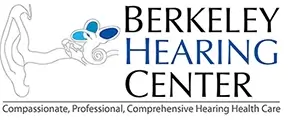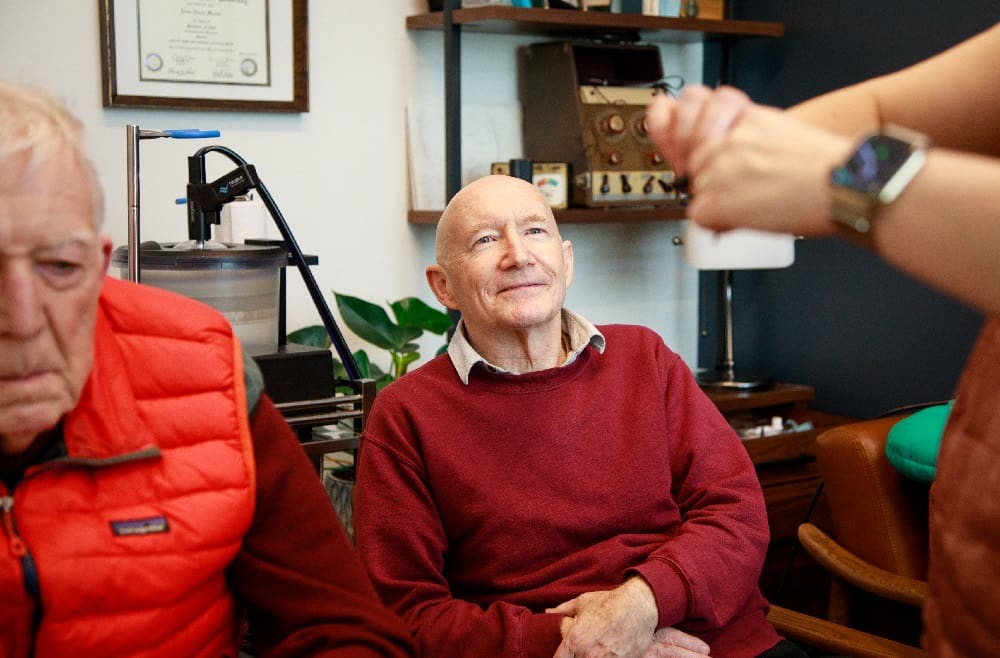2021-05-17
Jonathan Lipschutz Audiologist, M.S., F-AAA, Co-Owner
Healthcare is a business, and there’s nothing inherently wrong or ignoble with that. Our world functions around money. What we do for a living, providing goods and/or services, is how we survive and make our way in the world. How we put food on our table and a roof over our heads.
So it’s completely appropriate to be fairly compensated for the honorable work of caring for others. And, societally, we (correctly) put a higher value on good healthcare--for all of the dedication, education & training required to provide the highest levels of care. In my personal experience, the majority of healthcare providers do what they do because they genuinely care about helping others.
I earn my living providing healthcare. My ‘business’ is healthcare. But I don’t think of myself as a “businessman,” and I don’t look at patients as “customers.” They’re people investing & entrusting me with their care & well-being.
What an honor and responsibility!
So the care decisions I make are solely based on what’s best for my patients. I follow Audiology ‘best practices.
I spend a great deal of time educating/counseling/empowering (often correcting misinformation) my patients so they can make the most informed decisions possible about their healthcare, instructing them, and practicing use & care so they can consistently get the maximum benefit from their hearing aids and assistive technology.
This is what good healthcare looks like.
But what happens when the business of healthcare becomes more focused on profit at the expense of the patient?
The business side of hearing healthcare seems to be moving in two different directions. On one end of the spectrum, there will be private practice audiology clinics (some hospital-based), emphasizing individualized, hands-on, patient-centered healthcare from professionals with experience/expertise utilizing state-of-the-art technology & best practices, maximizing short and long-term outcomes for every patient.

On the other end of the spectrum, there will be OTC (over the counter), Big Box stores, or online hearing healthcare. Offerings emphasizing only tools/technology (less-than state-of-the-art) alone without any healthcare or (at best) remote hearing healthcare from random practitioners unable to evaluate basic physical fit or give hands-on instruction, let alone verify/validate actual benefit for the patient, even in the short term. And for a relatively small percentage of patients, that will be adequate to address their immediate needs. I’ve previously written about what OTC will mean for people with hearing loss and the hearing healthcare ‘marketplace.’ I believe if implemented correctly, with a concurrent strong public education initiative, OTC would be a net positive for early consumers in the long run. However, if OTC is released without that public awareness campaign (as I fear it will), it will just contribute even more confusion for consumers already beset by a lack of understanding and misinformation regarding what constitutes good hearing healthcare. I’ve also written at length in previous articles about ‘Big Box’ healthcare. But what about these relatively new, completely online hearing healthcare models, such as ListenLively, which touts “high-tech hearing aids” & “on-demand audiology care” via their app. What level or aspects of hearing healthcare can be provided well remotely?
Really...Can you get good hearing healthcare remotely?
Thanks to the pandemic, I’ve gotten a pretty good look at fully remote hearing healthcare, and (unsurprisingly) there really is no substitute for compassionate, professional in-person care.
Setting aside the obvious benefits and critical importance of a trusted patient/care provider relationship, critical aspects of what constitutes audiological best practices are impossible to perform remotely.
Otoscopy (visual/physical examination of the pinna, ear canal, and tympanic membrane or eardrum), full diagnostic hearing evaluation (air & bone conduction pure tones, speech understanding in quiet & noise, immittance audiometry, OAEs), hearing aid physical fit assessment and acoustic verification/validation all require in-person care. If you can’t really look at/in a patient’s ear, it’s impossible to assess the anatomy and health of the outer ear/ear canal or wax issues. No way to accurately assess & address physical fit/comfort-related issues, and more challenging to effectively demonstrate aspects of use & care of hearing aids.

A full, accurate audiological assessment requires specialized, calibrated equipment with specific physical placement of transducers/probes and performed in a sound isolated room.
Rudimentary online hearing tests exist, but results can vary wildly based on the user's environment and/or equipment (i.e., headphones, speakers, etc.). Plus, it paints only a very small part of the picture. Certainly, some aspects of hearing aid programming can be effectively done remotely. But it’s critical to understand that these are only fine-tuning adjustments that are based on settings previously verified in situ (i.e., in-person) using real-ear measurements (REMs).
REMs, sometimes referred to as probe microphone measurements are the gold standard to determine whether hearing aids provide the precise level of amplification needed across the frequency spectrum and at different input volumes to achieve the best intelligibility improvement and subjective loudness perception possible for each individuals’ hearing loss.
REMs take into account the unique acoustic characteristics of each user’s ears to precisely quantify benefit while the hearing aids are in the patient’s ears!
Every day I’m blown away by how far off the manufacturer’s recommended volume targets are for a given patient’s hearing loss, based on their probe microphone measurements.
Without REMs, I have no idea if the hearing aids I’m programming are providing the correct benefit that they are capable of or possibly creating another problem. Without REMs, I have no foundation upon which to make future fine-tuning adjustments to address the issues my patients are experiencing.
It’s clear that ‘remote audiology’ can’t remotely begin to provide the level of care necessary for good, let alone excellent hearing healthcare. It certainly can be a tool for the added convenience of the patient, but one we use when indicated and appropriate.
But even setting all of that aside, what about the hearing aids themselves?
ListenLively purchases their hearing aids from ReSound, a manufacturer that is regarded as one of the best. But the devices they purchase are basic devices from ReSound’s previous generation of products. We have access to all levels of the latest technology, ‘entry-level’ (basic) to ‘state-of-the-art,’ from ALL of the major manufacturers. All of this is to reiterate an old axiom; you get what you pay for. When you are ‘buying hearing aids, you’re really investing in hearing healthcare.
The hearing aids are only a tool of the provider to treat your hearing loss. The quality of the tool certainly factors into the benefit you’ll receive. But it’s the knowledge, expertise, experience, and compassion of the provider that will really make the difference.
Invest wisely. We’re getting through this together. Which shows we can and need to work together to solve our very real problems!
What a hopeful thought for these trying times.
Please continue to love your community by continuing to mask and socially distance, when appropriate, and get vaccinated when you're eligible. They work, and they really are safe. Please also continue supporting your local businesses!
Jonathan Lipschutz Audiologist, M.S., F-AAA, Co-Owner






